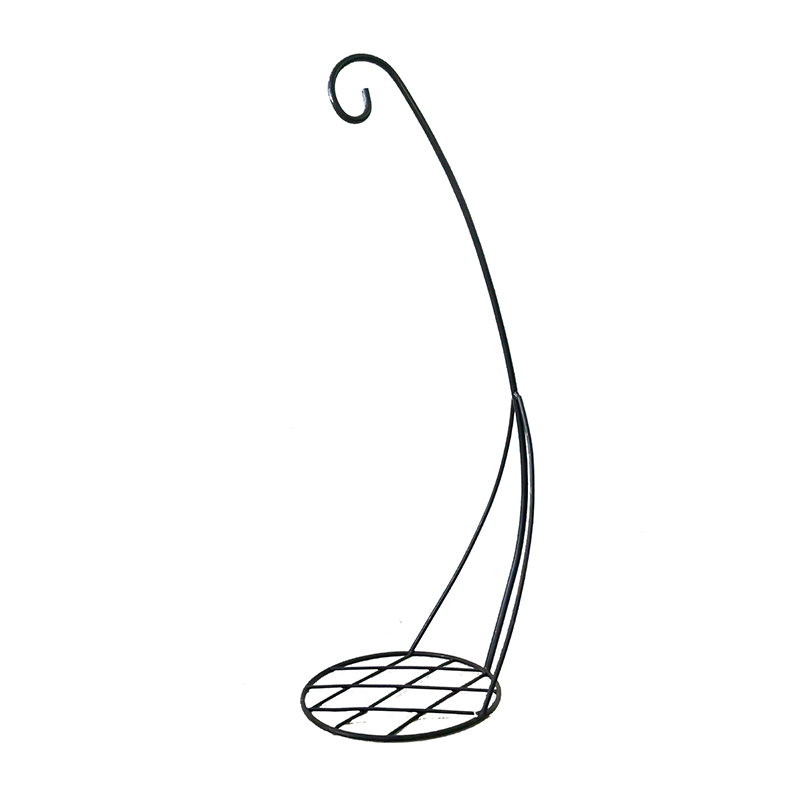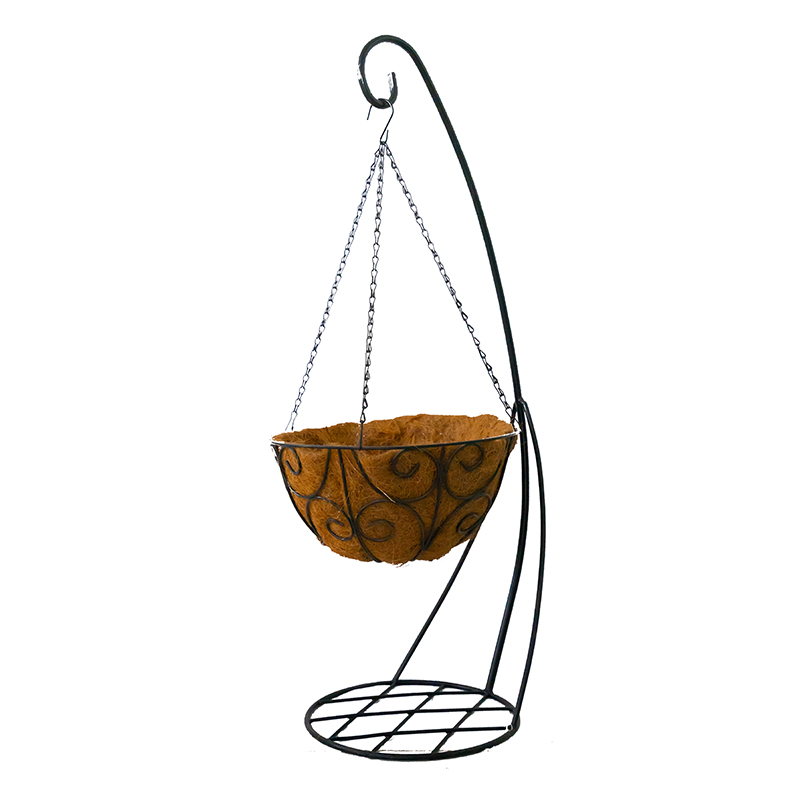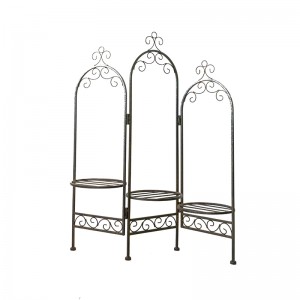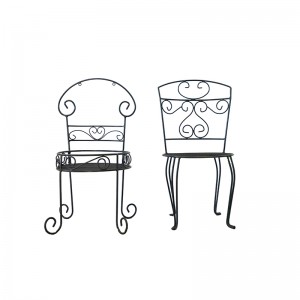Garden Hanging Planter Flower Baskets Stand
Feature
It is made of steel wire , powder-coated steel that has made it all weather resistant and very durable. It has legs for sturdy support; It offers an excellent solution for decorative and pot placement.
Wipe clean with a wet cloth It can be helpful to keep your house tidy and can make it handy within reach. This plant stand is great for not getting rust quickly like any other pant stand.
Specifications
| Type | classic |
| Usage Condition | FLOOR |
| Style | Classic |
| Used With | Flower/Green Plant |
| Place of Origin | China |
| Material | Metal, Cast Iron |
| Finishing | Powder Coated |
| Usage | Can fit different kinds of the potted plants |
| Quality | Guaranteed |
| Service | OEM ODM |
| Function | Quality Plant Holder |
| Packing | One leg per one plastic bag |
Product knowledge
How to transplant family flowers?
① The distance between the rows of transplanted plants depends on the size of the seedlings, the growth rate of the seedlings and the bed-stay period after transplantation. The preparation of seedling transplant bed is basically the same as that of seeding bed.
② Cut off the main roots when digging seedlings, without damaging the roots, and transplant them with mulch soil as much as possible.
③ Don't press too tightly when transplanting seedlings to cover the soil to avoid injury to the roots. When the seedlings are watered, the soil particles will sink under the water and the roots can be tightly connected.
④ The transplantation point should be slightly larger, so that the root stretches smoothly. The planting depth should be the same as the original planting depth, or 1 to 2 cm deeper. Too shallow and easy to fall down, too deep to develop poorly.
⑤ Seedling digging and planting should be coordinated, digging and planting. If the wind is strong and the evaporation is strong, dig up the seedlings to cover the shade.
⑥ After transplantation, water should be fully watered immediately and re-watered once to ensure sufficient amount. When it's drought, water while planting. Shade at the beginning of transplantation in summer to reduce evaporation and avoid wilting.













